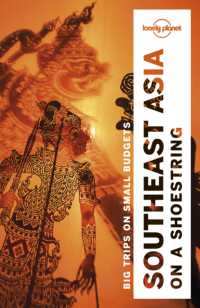- ホーム
- > 洋書
- > 英文書
- > Literary Criticism
Full Description
In Writing, Performance, and Authority in Augustan Rome Michele Lowrie examines how the Romans conceived of their poetic media. Song has links to the divine through prophecy, while writing offers a more quotidian, but also more realistic way of presenting what a poet does. In a culture of highly polished book production where recitation was the fashion, to claim to sing or to write was one means of self-definition. Lowrie assesses the stakes of poetic claims to one medium or another. Generic definition is an important factor. Epic and lyric have traditional associations with song, while the literary epistle is obviously written. But issues of poetic interpretability and power matter even more. The choice of medium contributes to the debate about the relative potency of rival discourses, specifically poetry, politics, and the law. Writing could offer an escape from the social and political demands of the moment by shifting the focus toward the readership of posterity.
Contents
1. Arma uirumque cano ; 2. Some Background ; I. WRITING, PERFORMANCE, AND PERFORMATIVITY ; 3. The Performance of Horatian Lyric: The Limits of Reference ; 4. Horatian Lyric and Metaphorical Truths ; 5. At the Limits of Performativity: The Carmen Saeculare ; 6. Monument and Festival in Vergil ; 7. Elegy: Overcoming Inability ; II. PERFORMANCE AND THE AUGUSTAN LITERARY EPISTLE ; 8. Love and Semiotics ; 9. Beyond Performance Envy: Horace, Epistles 2.1 ; 10. De- and Re-Contextualization ; 11. Ovid's Triumphs in Exile: Representation and Power ; III. WRITING, PERFORMANCE, AND POLITICS ; 12. Auctoritas and Representation: Augustus' Res gestae ; 13. Occasion and Monument: The Ara Pacis ; IV. READING AND THE LAW ; 14. Literature and the Law ; 15. Inscription and Testimony: Propertius 4.11 ; 16. The Pragmatics of Literature: Ovid








